India’s first female Prime Minister Indira Gandhi was the daughter of India’s first Prime Minister Jawaharlal Nehru. Indira Gandhi became the Prime Minister of India for three consecutive terms from 1966 to 1977. Indira Gandhi was the first and so far the only woman Prime Minister of India.
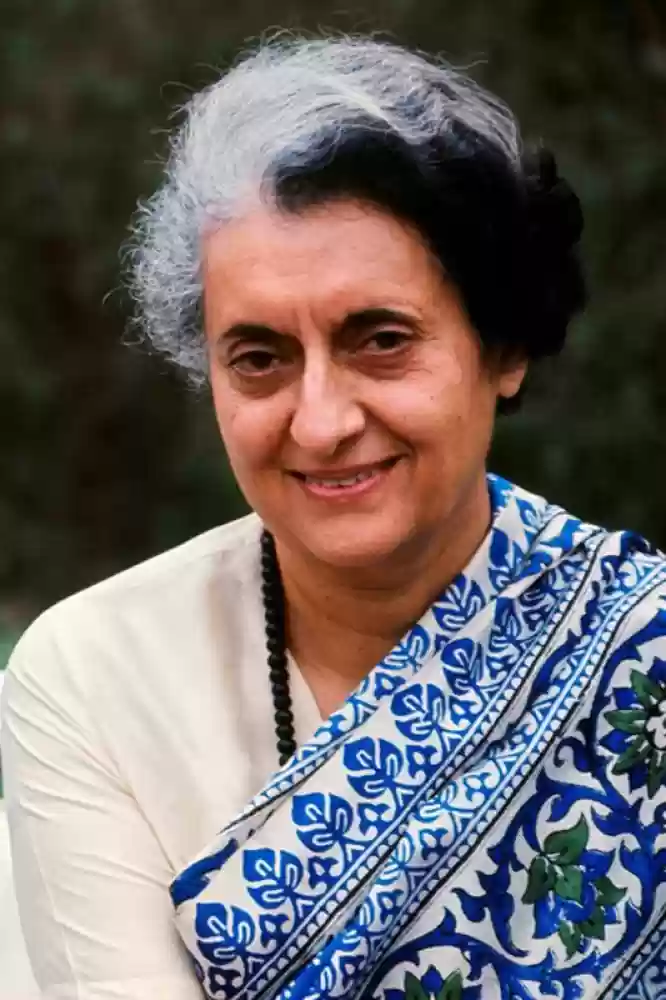
Background
Indira Gandhi was born on November 19, 1917 in Allahabad. Indira’s father was Jawaharlal Nehru and mother was Kamala Nehru. Indira’s grandfather Motilal Nehru was a prominent nationalist leader of India, and Indira Gandhi’s father Jawaharlal Nehru was a prominent member of the Indian independence movement and became the first Prime Minister of India after independence. After schooling, Indira Gandhi took admission in Visva Bharati University in Santiniketan, built by Rabindranath Tagore. After this Indira took admission in Oxford University for further studies.
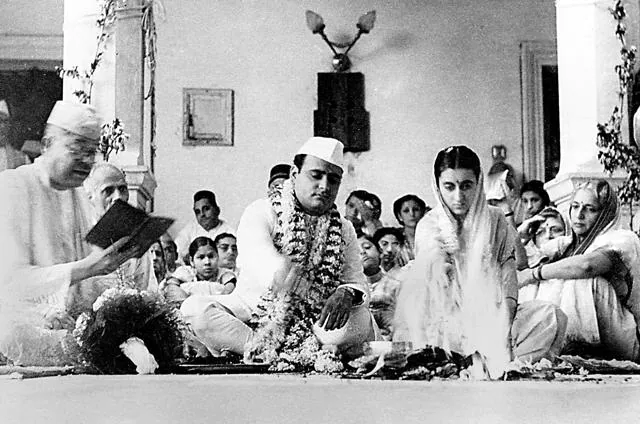
She started meeting Feroze Gandhi in universities, after which Indira married Feroze Gandhi on March 16, 1942 in Allahabad. In the 1950s, Gandhi worked as a personal assistant to the first Prime Minister Jawaharlal Nehru. In 1964, he was appointed as a Rajya Sabha member. After the sudden demise of Prime Minister Lal Bahadur Shastri, the then Congress Party President K Kamaraj decided to make Indira Gandhi the Prime Minister. Indira imposed emergency in 1975. After which Indira lost the 1977 general elections. Indira once again returned to power in the 1980s and was embroiled in a conflict with Punjab separatists. He was politically assassinated by his own bodyguards in 1984.
Political journey
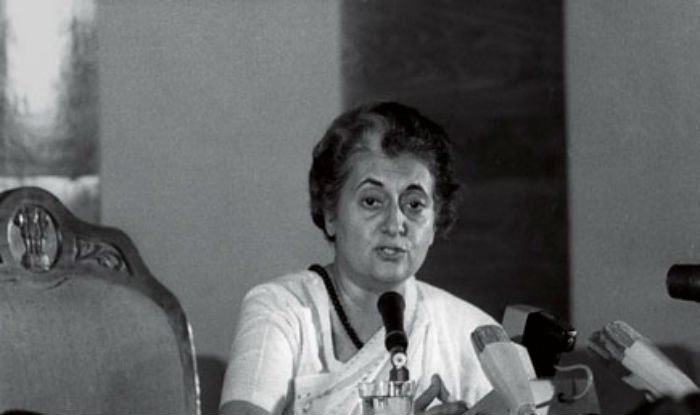
Indira Gandhi joined the Congress Party in 1938. When Jawaharlal Nehru took over as the first Prime Minister in 1947, Indira Gandhi took over as Jawaharlal Nehru’s assistant. In 1955, Indira became a member of the Congress Working Committee. In 1959, Indira was made the President of the Congress Party, in 1964 she was made a member of the Rajya Sabha, at that time Lal Bahadur Shastri was the second Prime Minister of India and Indira was made the Minister of Information and Broadcasting in his government.
As prime minister
When the then Prime Minister Lal Bahadur Shastri died suddenly in January 1966, then Congress President K Kamaraj made Indira Gandhi the Prime Minister of India. Many members of the party opposed this and faced challenges from Gandhi. Morarji Desai won one seat in the Lok Sabha elections in 1967 and the Congress Party won the elections by a small margin, after which Indira became the Prime Minister and Morarji Desai became the Deputy Prime Minister. Gradually tension started increasing within the party and Morarji Desai and others were expelled from the party. After this, Gandhi along with other party members formed a new party which was called the New Congress Party.
In 1971, the New Congress Party won the Lok Sabha elections. Indira Gandhi led the Indian armed forces in a decisive victory over Pakistan in late 1971, resulting in the creation of Bangladesh and Indira becoming the first government leader to recognize the new country. In the 1972 elections, Indira once again won the assembly elections with a large majority. Shortly thereafter, the defeated representative of the Socialist Party in the 1971 national election filed an indictment against Indira Gandhi for violating election laws in that election contest, after which the Allahabad High Court ruled against her in 1975, in which the court said that Gandhi will be deprived of her MP seat and will have to stay out of politics for about 6 years. Indira then appealed to the Supreme Court, but did not receive any satisfactory response and took matters into her own hands, declaring a state of emergency throughout India and jailing her opponents and assuming emergency powers. Took. After which Gandhi made many new laws, in which personal freedom was agreed upon. After this period, Indira also implemented many unpleasant policies on a large scale.
Fall and return to power
After 2 years, opposition to this emergency regime began to mount and in early 1977 his opponents were released. The opponents decided to oust the Congress Party from power. In 1977, national parliamentary elections were held after a long time and Indira’s party lost the elections badly. After which the Janata Party (presently Bharatiya Janata Party) took over the reins of the country and Morarji Desai became the new Prime Minister of the country.
Lok Sabha elections were held again in 1980 and Gandhi’s party once again returned to power with a landslide victory, in this election his son Sanjay Gandhi became his chief political advisor. Sanjay also won a seat from the Lok Sabha in this election. Sanjay Gandhi died in an air crash in June 1980. After Sanjay’s death, Indira Gandhi groomed her second son Rajiv Gandhi to lead her party.
In 1982, a large number of Sikhs under the leadership of Sant Jarnail Singh Bhind captured and fortified the Golden Temple complex in Amritsar, the holiest temple of the Sikhs. Tension grew between the government and the Sikhs, and in June 1984 Indira Gandhi ordered the Indian Army to attack and force the Sikhs out of the temple complex. In this fight, some walls of the temple were badly damaged and at least more than 450 Sikhs were killed. 5 months after the incident, Indira Gandhi was arrested in her garden in New Delhi in retaliation for the attack in Amritsar. He was shot dead by two bodyguards, after which his son Rajiv Gandhi became the new Prime Minister.
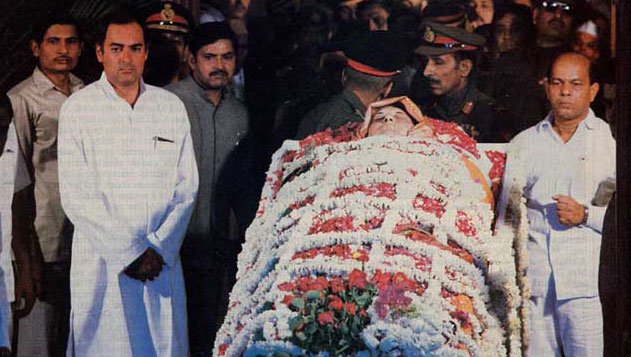
Family
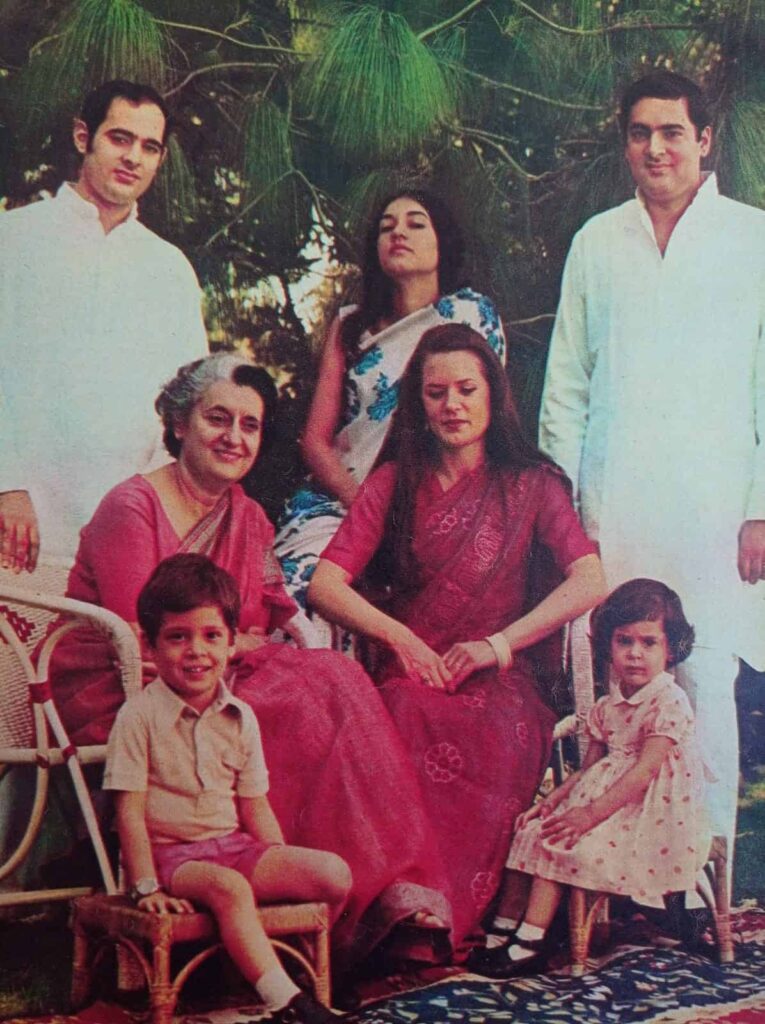
Indira Gandhi’s father was Jawaharlal Nehru and mother Kamla Nehru, Indira Gandhi’s grandfather was Motilal Nehru. Indira Gandhi was married to Firoz Gandhi and they both had two sons, Rajiv Gandhi and Sanjay Gandhi.
Respect
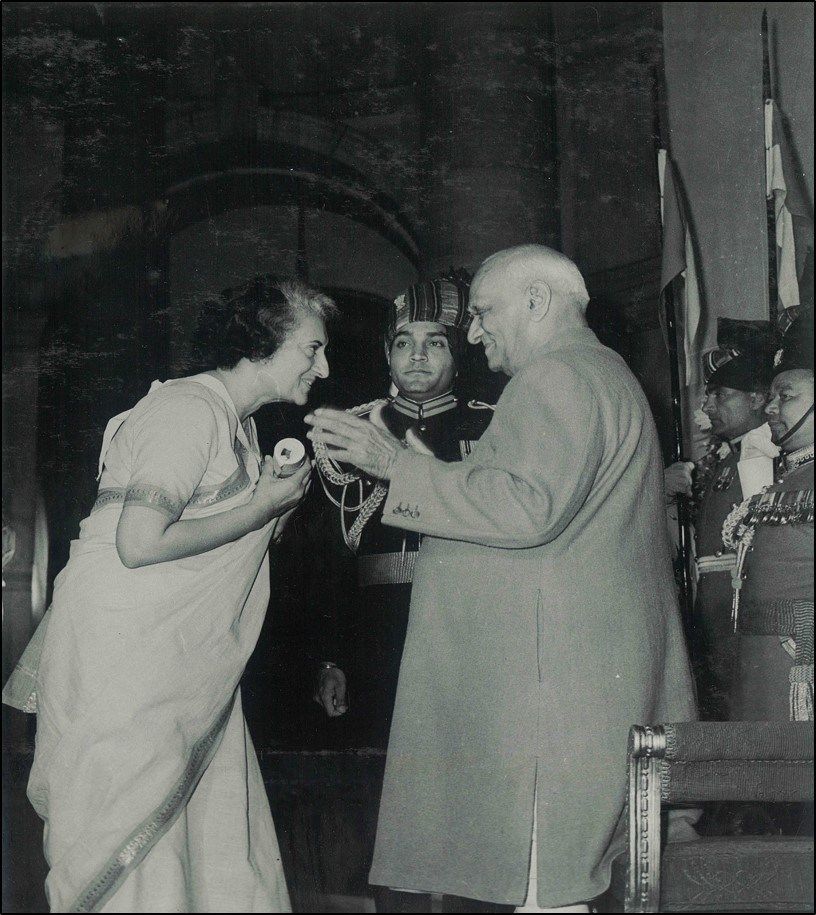
- Bharat Ratna (1972),
- Mexican Academy Award (1972)
- Lenin Peace Prize(1985)
- Bangladesh Freedom Honor (2011)
Bharat Ratna Award List
| Year | Recipients | About |
| Bharat Ratna 1954 | C. Rajagopalachari | Activist, statesman, and lawyer |
| Sarvapalli Radhakrishnan | India’s first Vice-President and second President | |
| C. V. Raman | Physicists, mathematicians, and scientists | |
| Bharat Ratna 1955 | Bhagwan Das | Activist, philosopher, and educationist |
| M. Visvesvaraya | Civil engineer, statesman, and Diwan of Mysore | |
| Jawaharlal Nehru | Activist and author served as the Prime Minister of India | |
| Bharat Ratna 1957 | Govind Ballabh Pant | Activist and first Chief Minister of Uttar Pradesh |
| Bharat Ratna 1958 | Dhondo Keshav Karve | Social reformer and educator |
| Bharat Ratna 1961 | Bidhan Chandra Roy | Physician, political leader, philanthropist, educationist, and social worker |
| Purushottam Das Tandon | Activist and speaker of the United Provinces Legislative Assembly | |
| Bharat Ratna 1962 | Rajendra Prasad | Activist, lawyer, statesman, and scholar |
| Bharat Ratna 1963 | Zakir Husain | Activist, economist, and education philosopher served as a Vice-Chancellor of Aligarh Muslim University and the Governor of Bihar |
| Pandurang Vaman Kane | Indologist and Sanskrit scholar, known for his five-volume literary work | |
| Bharat Ratna 1966 | Lal Bahadur Shastri | Activist and served as the second Prime Minister of India |
| Bharat Ratna 1971 | Indira Gandhi | First women Prime Minister of India |
| Bharat Ratna 1975 | V. V. Giri | Trade Unionist |
| Bharat Ratna 1976 | K. Kamaraj | Independence activist and statesman, former Chief Minister of Tamil Nadu |
| Bharat Ratna 1980 | Mother Teresa | Catholic nun and the founder of the Missionaries of Charity. |
| 1983 | Vinoba Bhave | Activist, social reformer, and a close associate of Mahatma Gandhi |
| Bharat Ratna 1987 | Khan Abdul Ghaffar Khan | First noncitizen, independence activist |
| Bharat Ratna 1988 | M. G. Ramachandran | Actor turned politician, Chief Minister of Tamil Nadu |
| Bharat Ratna 1990 | B.R. Ambedkar | Social reformer and leader of the Dalits |
| Nelson Mandela | Leader of the Anti-Apartheid Movement in South Africa, President of South Africa | |
| Bharat Ratna 1991 | Rajiv Gandhi | Gandhi was the ninth Prime Minister of India serving from 1984 to 1989. |
| Vallabhbhai Patel | Activist and first Deputy Prime Minister of India | |
| Morarji Desai | Activist, and Prime Minister of India | |
| Bharat Ratna 1992 | Abul Kalam Azad | Activist and first Minister of education |
| J. R. D. Tata | Industrialist, philanthropist, and aviation pioneer | |
| Satyajit Ray | Director, filmmaker, writer, novelist | |
| Bharat Ratna 1997 | Gulzarilal Nanda | Activist, and interim Prime Minister of India. |
| Aruna Asaf Ali | Activist | |
| A.P.J Abdul Kalam | Aerospace and defense scientist | |
| Bharat Ratna 1998 | M. S. Subbulakshmi | Carnatic classical vocalist |
| Chidambaram Subramaniam | Activist and former Minister of Agriculture of India | |
| Bharat Ratna 1999 | Jayaprakash Narayan | Activist, and social reformer |
| Amartya Sen | Economist | |
| Gopinath Bordoloi | Activist | |
| Ravi Shankar | Musician, sitar player | |
| Bharat Ratna 2001 | Lata Mangeshkar | Singer |
| Bismillah Khan | Hindustani classical shehnai player | |
| Bharat Ratna 2009 | Bhimsen Joshi | Hindustani classical vocalist |
| Bharat Ratna 2014 | C. N. R. Rao | Chemist and professor, author |
| Sachin Tendulkar | Cricketer | |
| Bharat Ratna 2015 | Madan Mohan Malaviya | Scholar and educational reformer. |
| Atal Bihari Bajpayee | Elected nine times to the Lok Sabha, twice to the Rajya Sabha, and served as the Prime Minister of India for three terms. | |
| Bharat Ratna 2019 | Pranab Mukherjee | Indian politician, and senior leader in the Indian National Congress. |
| Nanaji Deshmukh | A social activist from India, education, health, and rural self-reliance. | |
| Bhupen Hazarika | Indian playback singer, lyricist, musician, singer, poet, and filmmaker from Assam. |
List of Indian Prime Ministers
| Prime Minister’s Names | Term of Office |
| Jawahar Lal Nehru | 15 Aug 1947 to 27 May 1964 (16Y, 286D) |
| Gulzarilal Nanda | 27 May 1964 to 9 Jun (13D) |
| Lal Bahadur Shastri | 9 Jun 1964 to 11 Jan 1966 (1Y, 216D) |
| Gulzarilal Nanda | 11 Jan 1966, 24 Jan 1966 (13D) |
| Indira Gandhi | 24 Jan 1966 to 24 Mar 1977 (11Y, 59D) |
| Morarji Desai | 24 Mar 1977 to 28 Jul 1979 (2Y, 126D) |
| Charan Singh | 28 Jul 1979 to 14 Jan 1980 (170D) |
| Indira Gandhi | 14 Jan 1980 to 31 Oct 1984 (4Y, 291D) |
| Rajiv Gandhi | 31 Oct 1984 to 2 Dec 1989 (5Y, 32D) |
| V. P. Singh | 2 Dec 1989 to 10 Nov 1990 (343D) |
| Chandra Shekhar | 10 Nov 1990 to 21 Jun 1991 (223D) |
| P. V. Narasimha Rao | 21 Jun 1991 to 16 May 1996 (4Y, 330D) |
| Atal Bihari Vajpayee | 16 May 1996 to 1 Jun 1996 (16D) |
| H. D. Deve Gowda | 1 Jun 1996 to 21 April 1997 (324D) |
| Inder Kumar Gujral | 21 April 1997 to 19 Mar 1998 (332D) |
| Atal Bihari Vajpayee | 19 Mar 1998 to 22 May 2004 (6Y, 64D) |
| Manmohan Singh | 22 May 2004 to 26 May 2014 (10Y, 4D) |
| Narendra Modi | 26 May 2014 – Present |
| *Y – Years | *D – Days | |
https://hindi.ultranewstv.com/jayanti/indira-gandhi-death-aniversry-31-october/









